Key takeaways:
- Peer support groups provide emotional support and practical strategies, fostering a sense of belonging and empowerment for individuals with dyslexia.
- Sharing personal experiences in these groups leads to deeper connections and collective healing, enhancing resilience and confidence.
- Participation in dyslexia training and support groups enables individuals to articulate their needs, resulting in improved self-advocacy and personal growth.
- Finding peer support, whether locally or online, can significantly enhance the dyslexia journey through shared experiences and knowledge exchange.
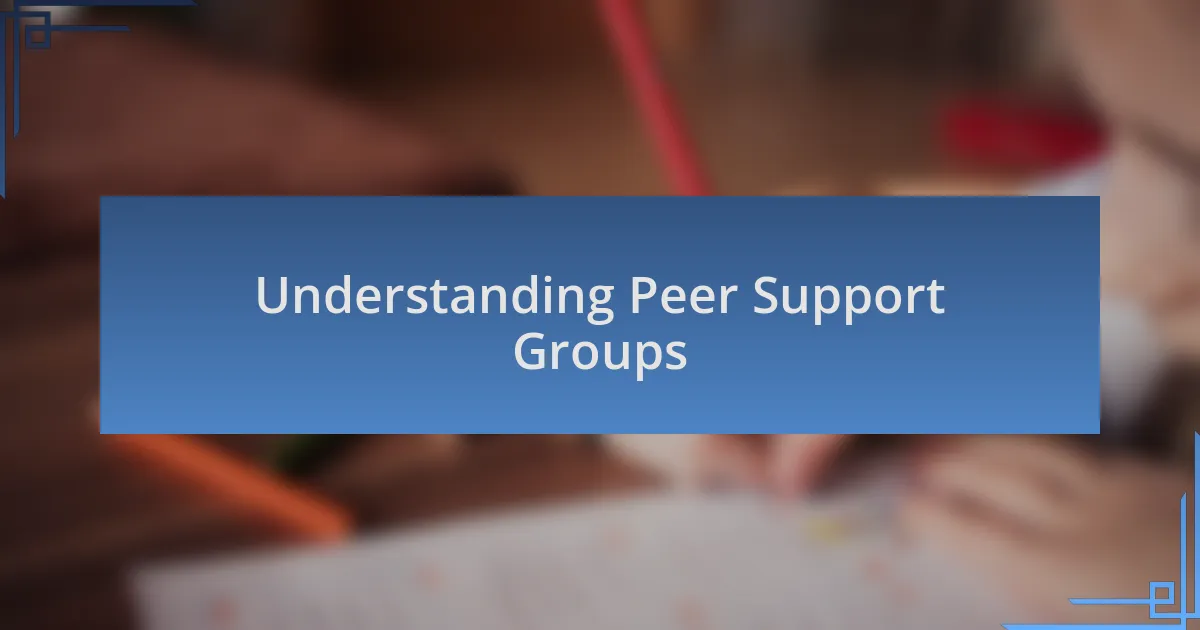
Understanding Peer Support Groups
Peer support groups serve as a vital lifeline for individuals navigating challenges like dyslexia. I remember my first meeting; it was both intimidating and exciting. Hearing others speak openly about their struggles made me realize I wasn’t alone in this journey. Have you ever felt that sense of relief when you can share your own story without fear of judgment?
These groups create a unique environment where members can exchange practical strategies and emotional support. For instance, I once participated in a session where someone shared a simple tool that transformed my approach to reading. It made me wonder—how often do we overlook simple solutions because we’re in our heads, feeling isolated?
Moreover, the power of sharing experiences can foster a sense of belonging that is essential for personal growth. I learned that vulnerability can be a strength, allowing us to connect on deeper levels. Isn’t it remarkable how a shared struggle can turn into a source of empowerment for everyone involved?

Importance of Peer Support
The significance of peer support can’t be overstated. I vividly recall a moment during one of our meetings when a member spoke candidly about their frustration with certain reading methods. It struck a chord with me; this was a common struggle, yet here we were, able to share ideas and support each other. Have you ever felt that spark of inspiration when someone else’s experience resonates with your own?
In my experience, the emotional connections formed in these groups often lead to breakthrough moments. For instance, I found solace when a fellow member shared their coping techniques for dealing with anxiety related to dyslexia. The relief was palpable in the room as others nodded in agreement. Isn’t it powerful how shared emotions can create a collective healing atmosphere?
Moreover, peer support nurtures resilience by encouraging individuals to persist through challenges. I once witnessed a member, who was newly diagnosed, gain confidence after receiving encouragement from others who were further along in their journey. This kind of encouragement is invaluable—wouldn’t you agree that knowing you have allies makes facing adversity less daunting?
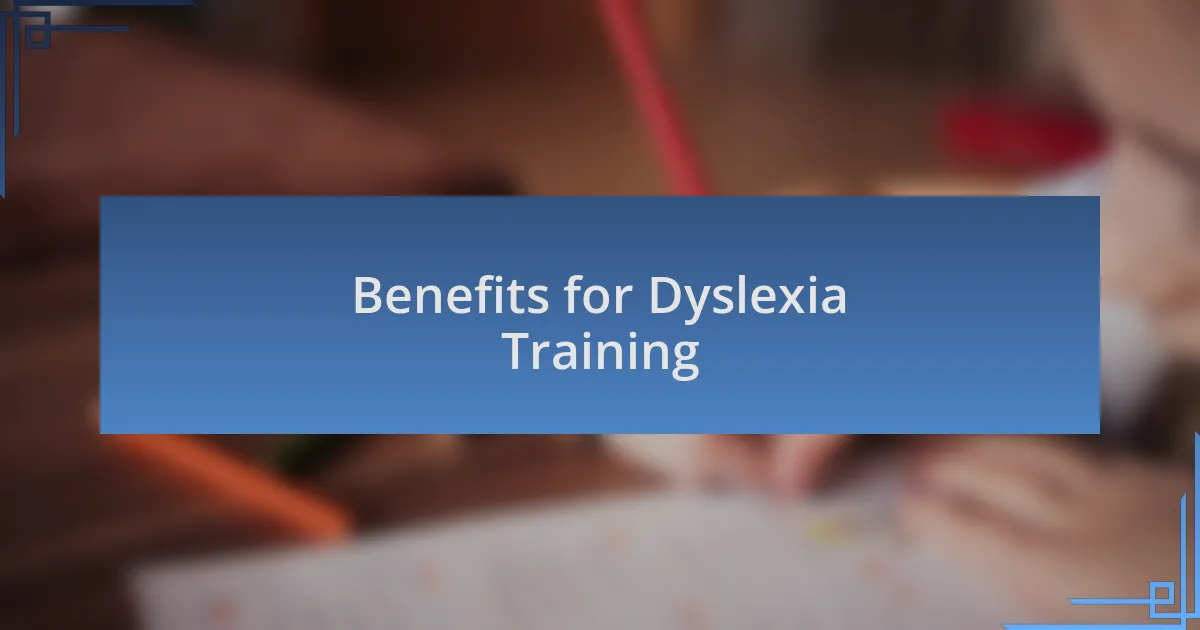
Benefits for Dyslexia Training
Exploring the benefits of dyslexia training reveals a multifaceted approach to learning that extends beyond traditional methods. I remember attending a workshop where the facilitator introduced us to unique strategies tailored specifically for our needs. The moment I grasped how to break down complex tasks into manageable steps, it felt like someone had turned on a light switch. Have you experienced that kind of clarity? It’s astonishing how the right approach can transform our abilities and self-confidence.
In addition to enhancing practical skills, dyslexia training fosters a sense of community and belonging. At one workshop, I connected with a group of individuals who shared not only similar challenges but also an inspiring determination to thrive. What struck me was how sharing our stories—both triumphs and setbacks—created a tapestry of understanding. Wouldn’t you agree that feeling understood by others in a supportive environment can make all the difference in our journey?
Additionally, the empowerment gained from dyslexia training transcends the educational aspects. After participating in programs that emphasized self-advocacy, I felt equipped to discuss my needs in various life situations, whether in academia or the workplace. That newfound voice reminded me that the journey with dyslexia doesn’t have to be faced in silence. Have you ever found strength in articulating your experiences? It’s moments like those that truly exemplify the extensive benefits of targeted training.
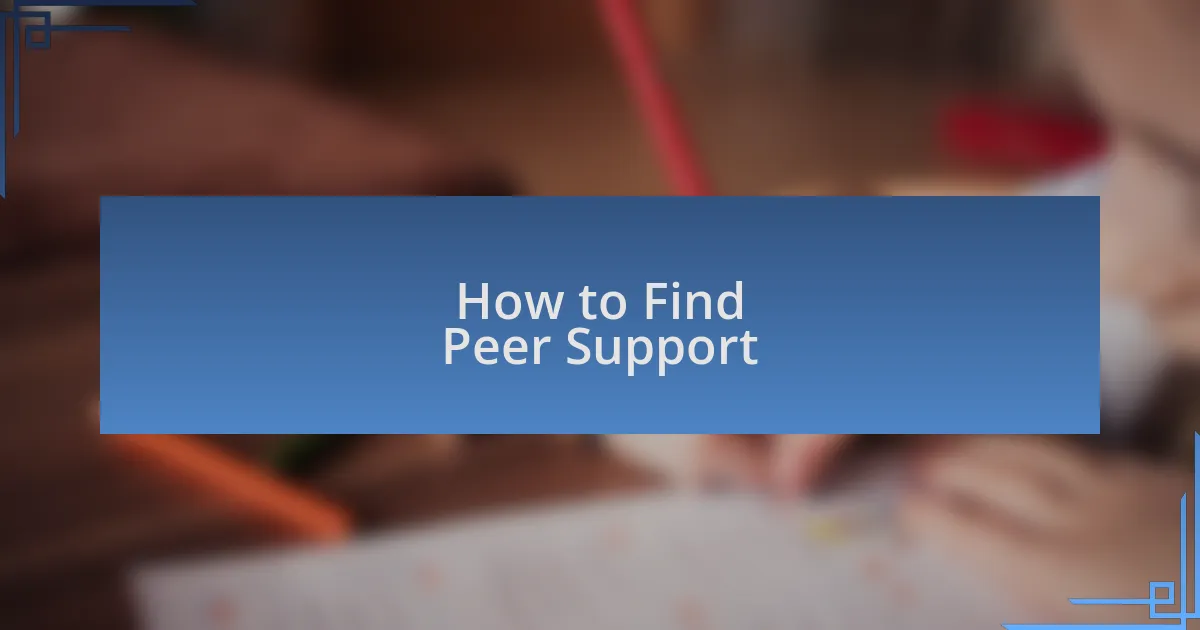
How to Find Peer Support
Finding peer support can significantly enhance your experience with dyslexia, and it often starts with seeking out local organizations or groups dedicated to learning differences. I remember the moment I stumbled upon a flyer for a local dyslexia support group. Attending that first meeting opened my eyes to a whole community that understood not only the struggles but also the unique strengths we possess. Have you ever felt a surge of relief when you realize you’re not alone?
Online resources are also invaluable for connecting with peers who share similar experiences. Participating in forums or social media groups specifically focused on dyslexia can provide a sense of belonging, even if you can’t meet in person. I’ve had countless enlightening exchanges with individuals from all over the world; their perspectives were enriching and often gave me fresh ideas about managing challenges. Isn’t it remarkable how a simple chat can inspire new ways of thinking?
When seeking peer support, don’t hesitate to reach out to local schools or educational institutions. Many have parental groups or student alliances aimed at families navigating dyslexia. I vividly recall discussing strategies with fellow parents at a school-organized seminar; those conversations not only offered practical advice but also forged lasting friendships. Have you thought about how much you could learn just by asking someone else about their journey?
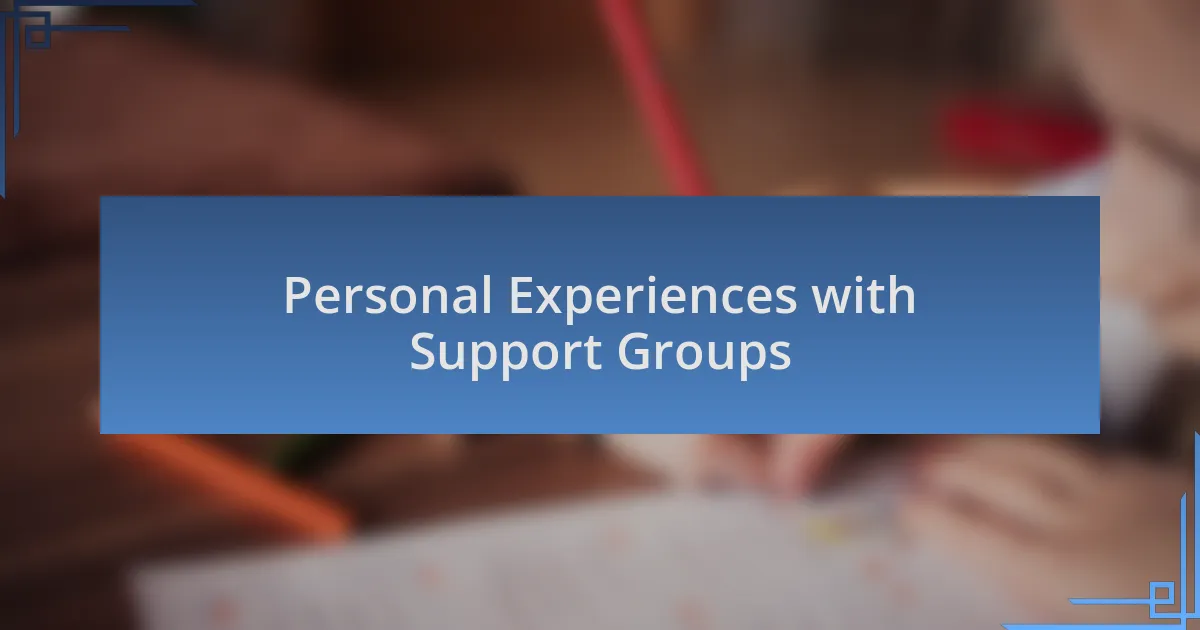
Personal Experiences with Support Groups
Support groups have played a pivotal role in my journey with dyslexia. I remember one particular meeting where we shared our stories openly. The moments of vulnerability created an atmosphere where everyone felt safe to express their frustrations and triumphs. Isn’t it incredible how sharing personal experiences can foster deep connections?
What surprised me was how diverse our backgrounds were yet our challenges were so similar. During one session, a fellow member shared a strategy that had worked wonders for them. It wasn’t just the advice that resonated but how each of us could adapt these insights to our unique situations. Have you ever considered how others’ experiences might reveal solutions you hadn’t thought of before?
Being part of a support group has not only provided practical tools but also emotional reassurance. I’ll never forget how, after a particularly tough week, simply listening to someone else articulate what I’d been feeling was cathartic. It’s as if we were all reminded that we’re in this together, each bringing our strengths to the table. Doesn’t that sense of camaraderie make the journey feel a little less daunting?
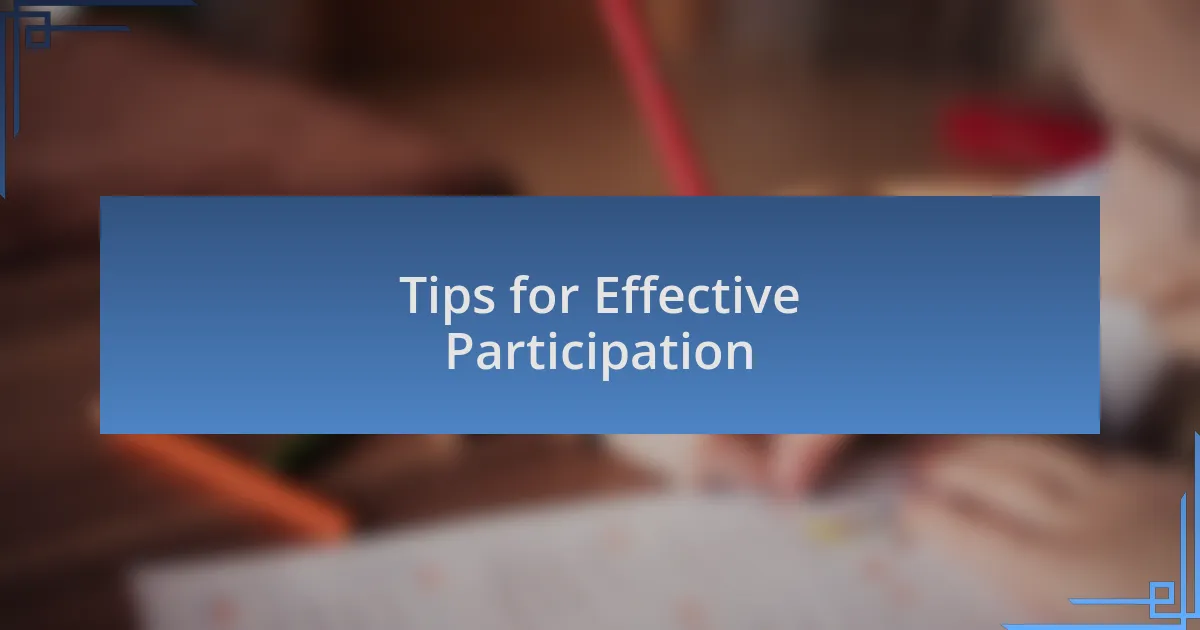
Tips for Effective Participation
When participating in a peer support group, it’s essential to approach each meeting with an open mind. I vividly recall the first time I attended, feeling nervous but curious. I decided to let go of my preconceived notions and simply listen. That willingness to absorb the experiences of others not only enriched my understanding but also left me with insights I hadn’t expected. Have you ever felt how powerful it can be to just sit back and truly hear someone else’s journey?
Engagement is key to maximizing the benefits of these gatherings. I remember a session where I hesitated to share my struggle with a particular reading technique. But when I finally spoke up, the encouragement I received was overwhelmingly supportive. It’s funny how I initially feared judgment, yet what I found was a community eager to help. Have you ever found that by sharing your own challenges, you inspire others to do the same?
Finally, consistency in attendance can make a significant difference. I learned early on that the more frequently I showed up, the more comfortable I became. After a few months, I noticed that relationships deepened, and those heartfelt discussions turned into genuine friendships. It made me think; could regular commitment to a group be as vital as the advice shared within it?